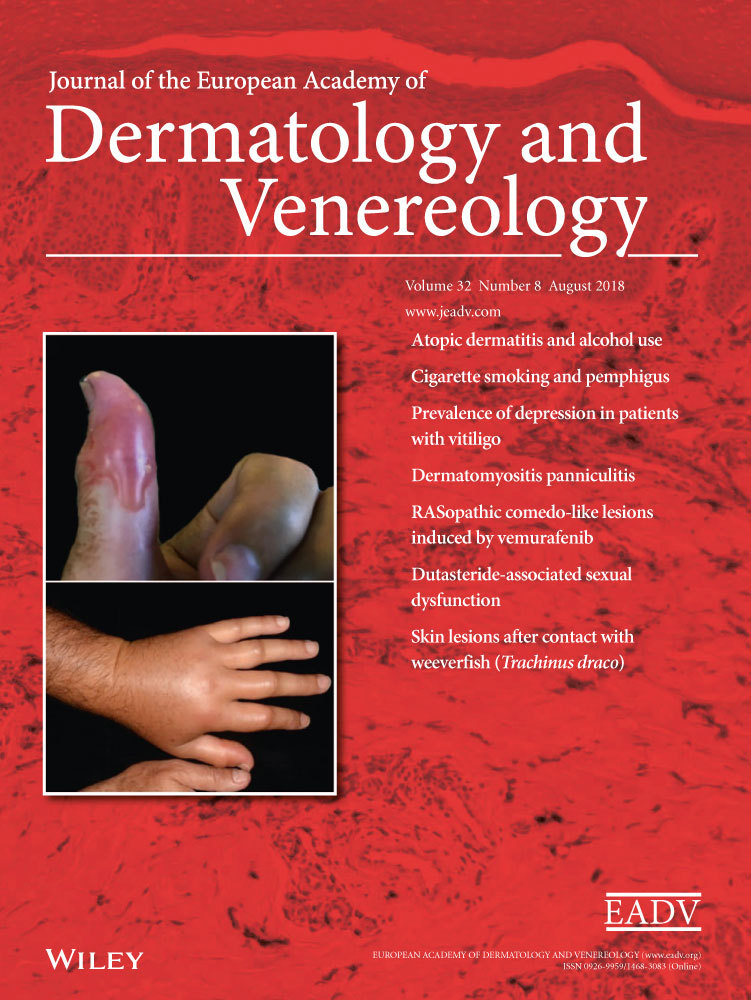5-alpha-reductase inhibitor treatment for frontal fibrosing alopecia: an evidence-based treatment update
Conflict of interest
None declared.
Funding Source
None declared.
Abstract
Background
Treatment for frontal fibrosing alopecia (FFA) is challenging, and its treatment regimen often mirrors other lymphocytic-predominant cicatricial alopecia. 5-alpha-reductase inhibitor (5ARI) has been reported with some treatment success in severe cases of FFA.
Objective
To carry out evidence-based analysis of articles published on treatment efficacy and safety of 5-alpha-reductase inhibitor for the treatment of FFA.
Methods
Articles published on the use of 5ARI to treat FFA between 2005 and 2017 were reviewed, analysed and graded according to the American College of Physicians outcome study grading system.
Results
There were two studies with moderate level of evidence that described the efficacy of 5ARI for the treatment of FFA. 5ARI was commonly used as adjunctive therapy with positive results in recalcitrant disease. Mild to moderate hair regrowth was reported in one grade 2 and three lower grade (one grade 3 and two grade 4) studies. There is limited evidence on the safety aspects of this medication in most studies that were analysed.
Limitations
Database studies might not fully account for confounders and are subjected to variations in methodology and data collection.
Conclusion
This review demonstrated that FFA patients treated with 5ARI could achieve either disease stability or reduction in the rate of progression in selected cases. A well-designed randomized, double-blind, controlled study would strengthen the role of 5ARI as part of treatment armamentarium for FFA.




